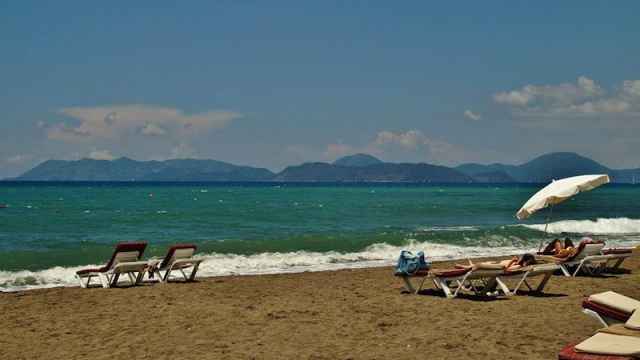The Kremlin “lacked enthusiasm” to mend ties with Turkey after the downing of a Russian jet jeopardized the countries' diplomatic relationship, the president of Russia's republic of Dagestan has revealed.
Tensions between Russia and Turkey increased dramatically after a Russian fighter-jet was downed by Turkish forces in November 2015. Moscow maintains that the jet was in Syrian air space, while Ankara says that the plane did not respond to several warnings after it encroached on Turkish territory.
The incident caused Russia to boycott a large selection of Turkish goods, as well as place a ban on package holidays to the country.
A letter of apology from [Turkish President Recep] Erdogan ultimately ended the standoff between the two sides in July, with Ankara promising to pay compensation to Russia and the dead pilot's family.
Dagestan's President Ramazan Abdulatipov,
who helped to mediate between Moscow and
Ankara, said that Russia, "had to
overcome a psychological barrier” in the
negotiations.
“Vladimir [Putin]
had a good relationship with
[Turkish President]
Erdogan. Reconciling
two friends is much more complicated than people then
making peace between strangers,” he said.
Abdulatipov would not confirm which side had initiated talks, but the Kremlin publicly rejected a proposed working group between both sides in May.
Erdogan also showed signs of unwillingness, and did not apologize for the downing in the first draft of a letter sent to Putin, said Abdulatipov.
An apology was one of Russia's key conditions for normalizing the relationship, alongside compensation for the pilot's family, he said.
“The original version of the letter was very general,” said Abdulatipov. “It was not anything resembling an apology.”
The letter was eventually sent to Putin via Kazakh President Nursultan Nazarbayev, Abdulatipov said.
Russia and Ankara's
estrangement saw Turkey ranked as an “enemy” by 29
percent of Russian respondents in
poll by the independent Levada Center at
the start of June 2016. The countries have
traditionally enjoyed a good relationship, with only 1 percent of
Russians judging Turkey as hostile before the jet's downing in 2015.
A Message from The Moscow Times:
Dear readers,
We are facing unprecedented challenges. Russia's Prosecutor General's Office has designated The Moscow Times as an "undesirable" organization, criminalizing our work and putting our staff at risk of prosecution. This follows our earlier unjust labeling as a "foreign agent."
These actions are direct attempts to silence independent journalism in Russia. The authorities claim our work "discredits the decisions of the Russian leadership." We see things differently: we strive to provide accurate, unbiased reporting on Russia.
We, the journalists of The Moscow Times, refuse to be silenced. But to continue our work, we need your help.
Your support, no matter how small, makes a world of difference. If you can, please support us monthly starting from just $2. It's quick to set up, and every contribution makes a significant impact.
By supporting The Moscow Times, you're defending open, independent journalism in the face of repression. Thank you for standing with us.
Remind me later.



